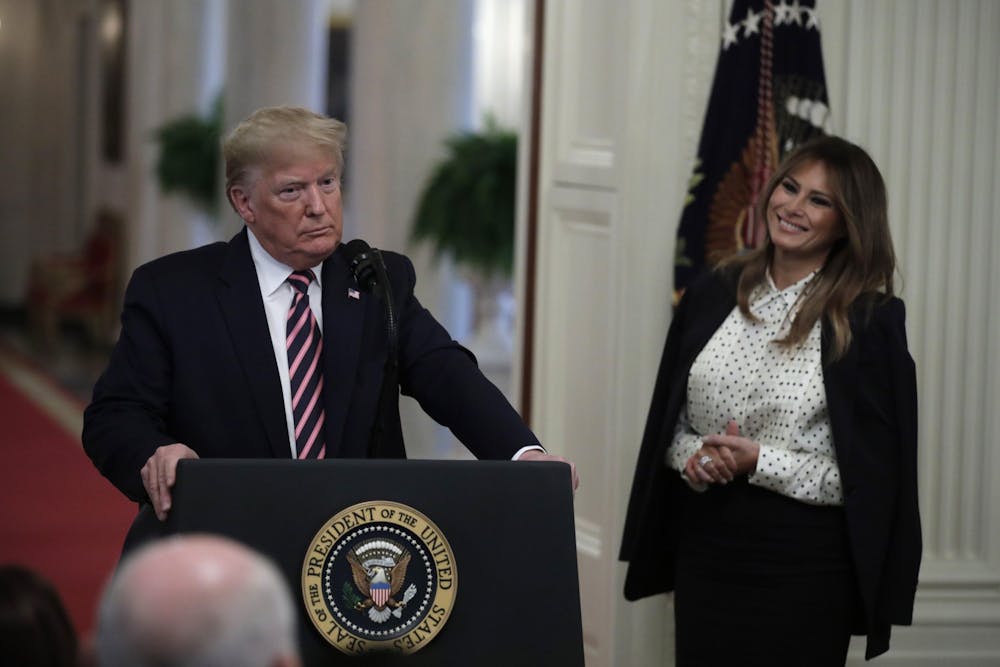After a long, tenuous and divisive impeachment process, the Senate voted Wednesday to acquit President Donald Trump of all charges. The trial is finally over. And where has it gotten us?
Allow me to preface this by making this clear: I make no attempt to weigh in on Trump's guilt or innocence. Rather, I question what this process has changed and the effects of those potential changes.
Let’s start with the obvious: Trump is still in office. Despite allocating numerous weeks that could have been used to better our country by working across the aisle to pass prescription drug price reform, to approve desperately needed infrastructure funding or to hold substantive debate on issues like the student loan crisis, there is nothing fundamentally different in Washington, D.C.
What has changed is faith in the ability of both sides to act in the interest of their constituents and their country, not their party. Both sides share blame for the utter lack of compromise in any of their articles, statements and votes.
The House impeached Trump without a single Republican vote, and the Senate acquitted him with only one senator crossing party lines. In other words, the outcome was predetermined. Both sides, with the exception of Sen. Mitt Romney, R-UT, stuck to their guns and wouldn’t give an inch. This is the type of partisan political theater that makes most people disgusted when the topic of politics comes up.
Democrats made it clear that they would not compromise on the promise of Rep. Rashida Tlaib, D-MI, to “Impeach the Motherfucker,” with Rep. Adam Schiff, D-CA, adding that Trump’s verdict “cannot be decided at the ballot box.” It has been clear from the beginning that Democrats saw no path other than impeachment.
Republicans are also guilty. Their knee-jerk defense of Trump has done the country no favors either, with many never considering a vote for anything but acquittal and rushing to call the process a sham. Their blind loyalty to questionable-at-best conduct is just as dangerous. In response to Romney breaking ranks with his caucus, Republicans have shown an ugly side of their partisan loyalty, with some even suggesting he leave the party over his vote.
One alternative both sides failed to pursue, with the exception of Sen. Joe Manchin, D-WV, was a censure of Trump’s actions. Democrats’ fear of the precedent this could set is well-founded, but they were only successful in convincing 1 out of 250 Republicans of their case. In light of this, a censure could have been the tool that condemned these actions but kept the country together.
Many Republicans in the Senate have expressed concerns over the phone call with President Volodymyr Zelensky of Ukraine, and it is probable that a bipartisan majority in both chambers could join together in saying, “This isn’t right, but it isn’t worth the divisiveness of removal from office.” Indeed, many Americans could get behind this unifying message, but unfortunately, that opportunity is long gone.
Now, Democrats and Republicans have heightened tensions between the parties, with both sides accusing the other of being a threat to democracy. In reality, the greatest threat to democracy will prove to be damage this has done to bipartisan initiatives and relationships.
Speaker of the House Nancy Pelosi, D-CA, tore up Trump’s State of the Union speech Tuesday night in front of the most prominent members of the federal government. These are the kinds of partisan outbursts this toxic process has created, a deep seated mistrust of anyone with a letter next to their name that's different from their own.
So where do we go from here? If there is any hope of restoring Washington, D.C., to an effective and trustworthy institution, we need to look to what unites us, not divides us. It is my solemn hope that every American still stands for the values of freedom, liberty, justice and equality that this country was founded on. We simply have different ideas on how to achieve those ends.
Remembering, difficult as it may be, that the other side is doing what they believe to be right and in the best interest of the nation may be the key to restoring some civility to the political scene.
The late Supreme Court Justice Antonin Scalia, when asked about his unlikely friendship with his ideological foe Justice Ruth Bader Ginsburg, is quoted as saying, “Some very good people have some very bad ideas.”
It would behoove Americans to keep this in mind.
Brett Abbott (he/him) is a freshman studying finance and is press secretary for College Republicans at IU. He plans to pursue a career in business or politics.






